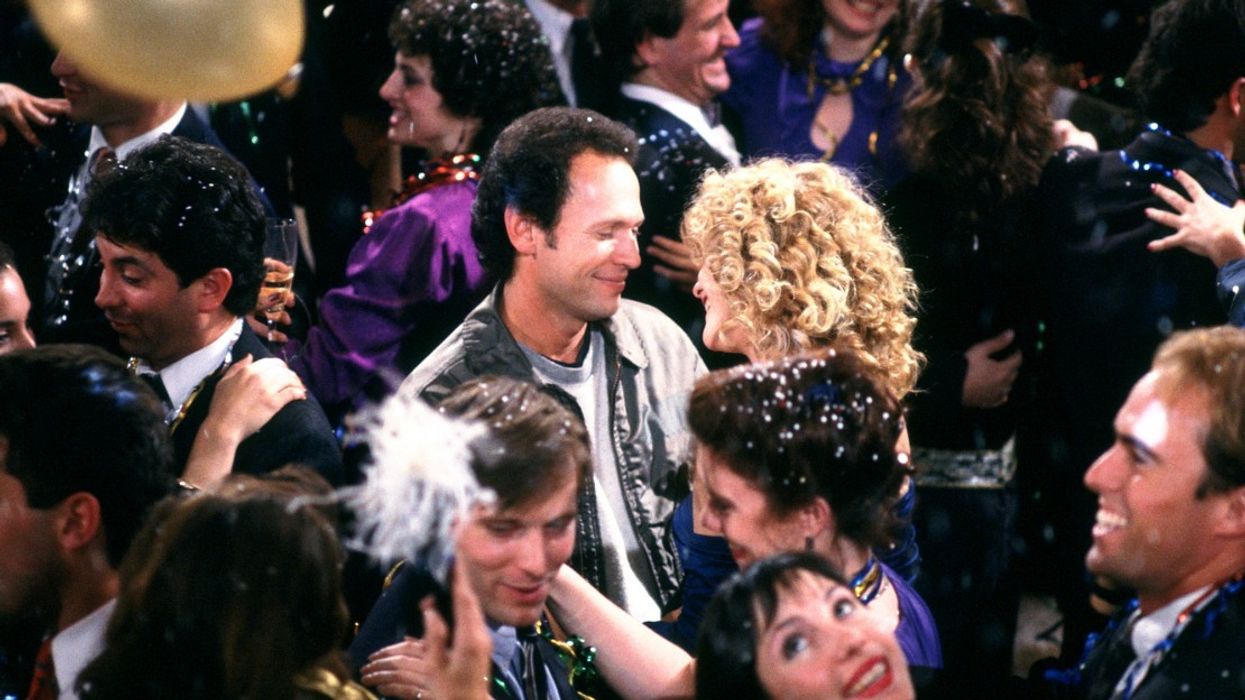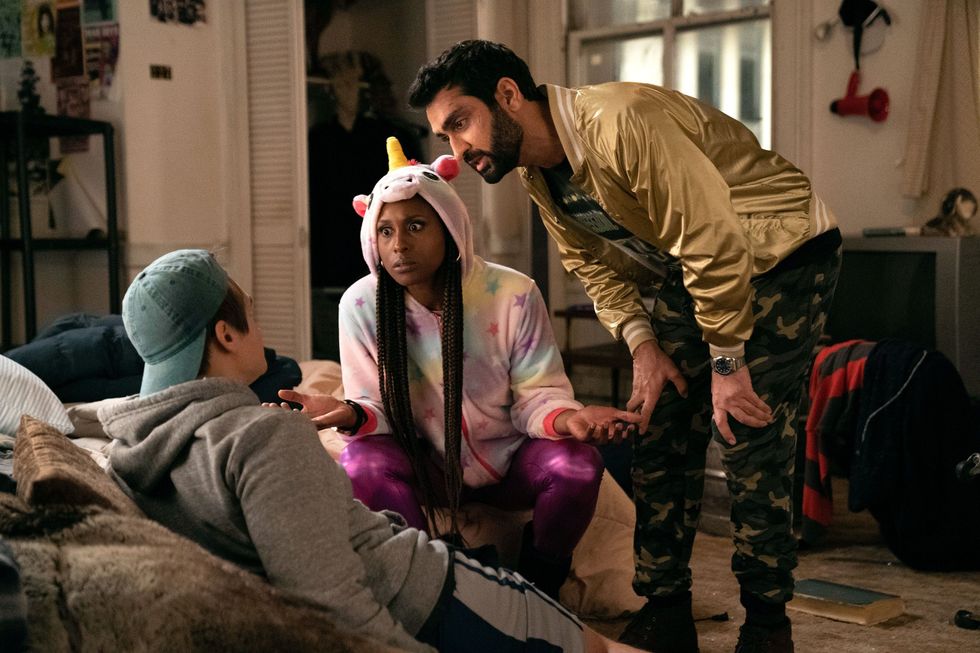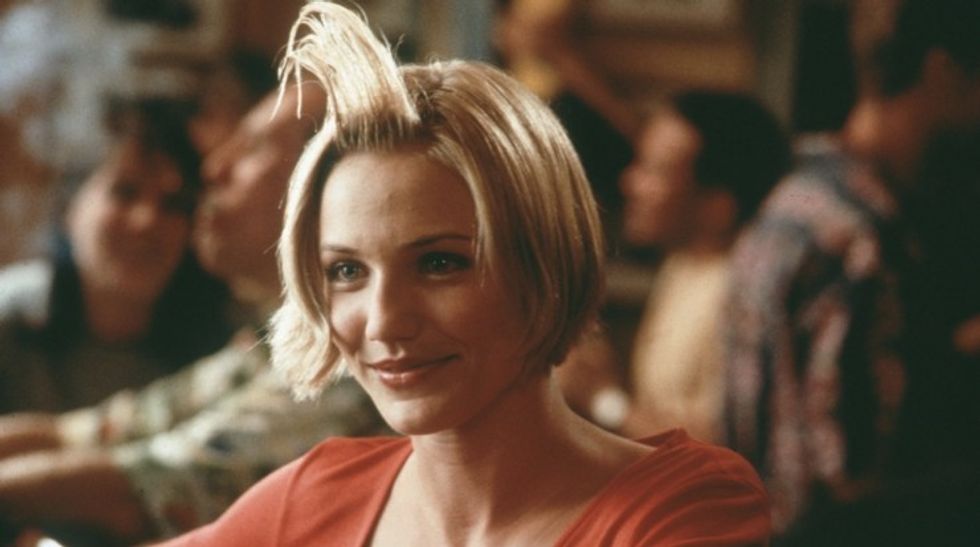Defining Romantic Comedies With Examples in Film and TV
There's nothing better than chemistry, laughter, and love in cinema.

When Harry Met Sally
One of the great joys in my life is snuggling on the couch and flipping on romantic comedies to watch with my wife.
While they can be predictable, the romantic comedy, or "rom-com," is a genre that is charming and can blend humor with love in a way that resonates universally.
This genre hinges on the development of a romantic relationship between two people, navigating the path of attraction, conflict, and resolution, all the while infused with comedic elements.
Today, we'll delve into the essence of romantic comedies, tracing their evolution and highlighting quintessential examples in both film and television that have defined the genre.
Let's get started.
Romantic Comedy Definition
Romantic comedies often abbreviated as "rom-com," is a genre that combines elements of romance and comedy to explore the dynamics of romantic relationships in a lighthearted, humorous manner.
The essential premise revolves around two individuals who navigate the complexities of falling in love, often overcoming obstacles and misunderstandings that provide comedic relief.
The History of the Romantic Comedy

Ted Lasso'
Apple
Romantic comedies have been a staple of the entertainment world since the early days of cinema, evolving from stage plays and literary works that date back even further.
We have always loved these kinds of stories, and while they go in and out of being immensely popular, there's always room for a great rom-com.
Initially, these stories were simple, focusing on the courtship and eventual union of two lovers, often overcoming societal or personal obstacles.
As the genre matured, it began to reflect changing societal norms and attitudes towards relationships, love, and gender roles, making it a fascinating mirror of cultural evolution over time.
You can learn a lot about love and relationships by studying the romantic comedies in each era.
Romantic Comedy Tropes

The Love Birds
Netflix
Romantic comedies, with their blend of humor and heart, often rely on certain tropes that have become familiar and beloved by audiences.
These tropes serve as storytelling shortcuts, helping to establish the narrative's direction and the characters' relationships quickly.
While some tropes can feel overused, they remain popular for their ability to evoke emotion, create comedic situations, and lead to satisfying resolutions.
I've written a few of these, and it really helps to unpack the tropes and then put your personal spin on them to showcase your unique voice.
- The Meet-Cute:This trope involves the protagonists meeting in an unusual, humorous, or cute manner that sets the tone for their relationship. Whether it's accidentally colliding on the street or getting stuck in an elevator together, the meet-cute is the spark that ignites the romantic storyline.
- Enemies to Lovers: In this scenario, the main characters initially dislike each other due to misunderstandings, rivalries, or opposing goals. Their gradual realization of mutual attraction and compatibility makes for a compelling journey from animosity to love.
- Fake Relationships: To achieve a goal or solve a problem, the protagonists pretend to be in a relationship. This pretense creates comedic situations and allows characters to explore their feelings for each other, often leading to genuine love.
- Opposites Attract: Characters with contrasting personalities, lifestyles, or backgrounds find themselves drawn to each other. This trope explores the idea that differences can complement each other, leading to personal growth and a deeper understanding of love.
- The Grand Gesture: Near the climax, one character makes a significant, often public, act of love to win over or reconcile with the other. This trope underscores the idea of love being worth extraordinary efforts.
- The Best Friend: A protagonist's best friend serves as a confidant, advisor, and comic relief, often providing insights into the main character's thoughts and feelings while contributing to the humor of the story.
- The Transformation: This trope involves a character undergoing a physical, emotional, or social transformation, sometimes to win over the love interest. It highlights the theme of personal growth and the idea that love can inspire individuals to become their best selves.
- Workplace Romance: The protagonists are coworkers or in a boss-employee relationship, leading to conflicts between professional responsibilities and personal feelings. This setting provides a backdrop for both comedic misunderstandings and the exploration of power dynamics in relationships.
- Second-Chance Romance: Characters who were previously in a relationship, or who missed their first chance at love, are reunited, offering them an opportunity to rekindle their romance. This trope speaks to the enduring nature of love and the idea of fate bringing people together.
- Love Triangle: A character must choose between two potential love interests, creating tension and conflict. This trope examines themes of desire, compatibility, and the complexity of human emotions.
Examples of the Romantic Comedy Genre

'Just Wright'
Searchlight Pictures
With over a century of these movies to pick from, it's hard to to just name a few, but I tried ot list some all time classics. there are thousands of titles in film and TV.
So, don't be upset if I left your favorites off the list.
Examples in Film
- It Happened One Night (1934) - Directed by Frank Capra, this film set the template for the romantic comedy genre.
- Roman Holiday (1953) - Featuring Audrey Hepburn and Gregory Peck in a charming European setting.
- Breakfast at Tiffany's (1961) - Audrey Hepburn's iconic role as Holly Golightly, based on Truman Capote's novel.
- Annie Hall (1977) - A significant film in romantic comedy history, known for witty dialogue and breaking the fourth wall.
- When Harry Met Sally... (1989) - Explores the question of whether men and women can just be friends.
- Pretty Woman (1990) - A Cinderella story starring Julia Roberts and Richard Gere.
- 10 Things I Hate About You (1999) - A modern retelling of Shakespeare's The Taming of the Shrew.
- Bridget Jones's Diary (2001) - Beloved for its relatable heroine and humorous take on love and life.
- Love Actually (2003) - A British ensemble film that has become a holiday staple.
- 500 Days of Summer (2009) - Offers a non-linear narrative and a realistic portrayal of relationships.
- Clueless (1995) - A modern adaptation of Jane Austen's Emma, set in a Beverly Hills high school.
- My Best Friend's Wedding (1997) - Features Julia Roberts in a story about unrequited love and friendship.
- Notting Hill (1999) - A British romantic comedy featuring Julia Roberts and Hugh Grant.
- The Wedding Singer (1998) - An 80s-set romantic comedy starring Adam Sandler and Drew Barrymore.
- Amélie (2001) - A French film about a young woman changing the lives of those around her.
- Legally Blonde (2001) - Reese Witherspoon stars as a sorority girl who goes to Harvard Law.
- 13 Going on 30 (2004) - A girl wakes up as a thirty-year-old woman after making a birthday wish.
- The Proposal (2009) - Sandra Bullock and Ryan Reynolds star in a story about facing deportation.
- Crazy, Stupid, Love. (2011) - A story about a man whose life unravels after his wife's infidelity.
- Silver Linings Playbook (2012) - Mixes drama and comedy, focusing on two people with mental health issues.
- La La Land (2016) - A musical romantic comedy-drama about love in Los Angeles.
- The Big Sick (2017) - Explores cross-cultural themes based on the real-life courtship between Kumail Nanjiani and Emily V. Gordon.
- Crazy Rich Asians (2018) - Notable for its Asian representation, focusing on a couple's romance.
- To All the Boys I've Loved Before (2018) - About a teen's secret love letters being sent to her crushes.
Examples in TV
- I Love Lucy (1951-1957) - One of the first shows to combine comedy with romantic elements.
- Cheers (1982-1993) - Features several romantic storylines, notably between Sam and Diane.
- Friends (1994-2004) - A cultural phenomenon exploring the romantic lives of its six main characters.
- Sex and the City (1998-2004) - Broke new ground in depicting the romantic and sexual lives of women in New York City.
- The Office (US) (2005-2013) - Known for its humor and the romantic subplot between Jim and Pam.
- Parks and Recreation (2009-2015) - Explores the romantic relationship between Leslie Knope and Ben Wyatt.
- New Girl (2011-2018) - Focuses on a quirky teacher who moves in with three single men.
- The Good Place (2016-2020) - A unique take on the afterlife with a central romantic plot.
- Gilmore Girls (2000-2007, 2016) - Features mother-daughter dynamics and romantic comedy elements.
- How I Met Your Mother (2005-2014) - Centers around Ted Mosby's quest to find love.
- The Mindy Project (2012-2017) - About an OB/GYN navigating her personal and professional life.
- Jane the Virgin (2014-2019) - A telenovela-inspired comedy about an accidental artificial insemination.
- Crazy Ex-Girlfriend (2015-2019) - Combines musical elements with comedy and drama.
- Master of None (2015-2021) - Explores modern romance with depth and humor.
- The Marvelous Mrs. Maisel (2017-present) - A woman's journey into stand-up comedy, with romantic elements.
- Love (2016-2018) - Explores romantic relationships through characters Gus and Mickey.
- Ted Lasso (2020-) - A more recent example that, while primarily a sports comedy, incorporates significant romantic comedy elements through its ensemble cast, exploring themes of love, redemption, and personal growth with a heartwarming and humorous touch.
Cultural Impact of the Romantic Comedy Genre

There's Something About Mary
20th Century Studios
Romantic comedies have played a significant role in shaping cultural perceptions of romance, love, and relationships. They offer escapism, entertainment, and often, a reflection on the complexities of modern love.
Criticisms of the genre include its tendency towards formulaic plots and lack of diversity, both in casting and in the representation of different types of relationships. However, recent years have seen a push towards more inclusive and varied narratives, challenging traditional norms and expanding the genre's appeal.
And we've also seen a huge leap in diverse stories here, welsoming in all ages, genders, and races into the mix.
With the rise of streaming platforms, the genre has found new life in both film and television, offering opportunities for experimentation and reaching a wider audience. The enduring popularity of rom-coms suggests that the appeal of watching two people fall in love, amidst laughter and tears, remains universal.
The romantic comedy genre, with its blend of humor, love, and the inevitable happy ending, continues to captivate audiences worldwide.
Through its evolution, it not only entertains but also offers insights into the changing dynamics of relationships and society at large. The examples cited here, among countless others, underscore the genre's versatility.
Let me know what you think in the comments.











